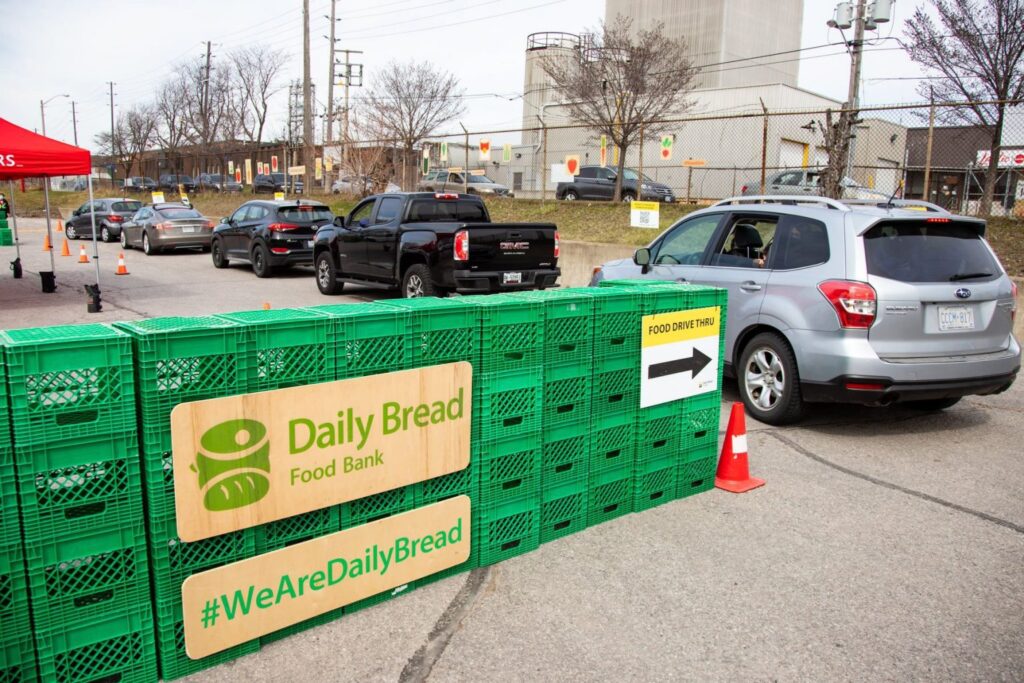
Black and Indigenous communities are three-and-a-half times more likely to experience food insecurity and poverty.
The staggering statistic is from a new report by Food Banks Canada that takes a deep dive into the growing hunger crisis in the country.
“I’m tired of having to say that we are at the highest level of food bank use in Canadian history but unfortunately, we keep breaking this record,” said Kirstin Beardsley, CEO of Food Banks Canada.
This new report paints an unequal picture of those more likely to experience poverty. They include Indigenous people, racialized people, transgender people, those with disabilities and newcomers.
“We made a point in this report to using an equity, diversity, inclusion lens to understand what we were reading to make sure we were reporting the results, the true results,” Beardsley explained. “It’s clear, and we see this at food banks, that food insecurity [and] poverty don’t affect people across this country in the same way.”
The report also found that Indigenous people living in urban settings experience poverty at a higher rate than other groups.
“Wage discrimination, it’s the historical impacts of colonization and residential schools and access to education and employment and housing discrimination all those factors for a good life are at play here,” said Suze Morrison with the Ontario Federation of Indigenous Friendship Centres.
Morrison explained 88 per cent of indigenous people in Ontario live in cities and towns, supported by the 31 Friendship Centres across the province.
The centres not only help feed communities but provide social services, like housing and job support as well as spaces to practice culture and heal from traumas. Morrison said this programming plays a vital role in their quality of life, but unfortunately, they have not received the funds to keep up with the demand.
“In addition to increased demand for all of those services and increased pressures that the centres are facing, they haven’t seen a match of increased funding or core funding from the provincial or federal government for a long time,” said Morrison. “So, whatever the solutions are, they have to include urban Indigenous people at the core.”
The report gave Ontario a “D-” in the fight against poverty. Two out of five residents are spending more than 30 per cent of their income on housing, 37 per cent of people in racialized communities are affected by low wages and Ontario has some of the lowest social assistance rates in the country.
Nearly 70 per cent of food bank users in Ontario are renters, which details how the cost of rent is a significant factor in the affordability of living in the province.
Almost half of government support recipients surveyed for the report said the support rates were insufficient to keep up with the cost of living.
“Government actions over the last number of years have not only failed to address poverty but also exacerbated it in some cases,” read the report.
Food Banks Canada is calling for a full poverty reduction strategy that includes targets and accountability, something Beardsley said has to be immediate and long-term.
They add Ontario’s 2023 budget “failed to address poverty reduction and the soaring cost of living.”
The report has several recommendations for the provincial government including setting a clear poverty reduction rate, modernizing Ontario Disability Support Payments and Ontario Works and establishing a fund to help accelerate the construction of affordable housing.
“We’re not just presenting a problem. We’re presenting realistic, actionable legislation for the government to put in place. So, I hope governments are listening.”
She said food banks are usually the first indicator of the problem of food insecurity and things are not looking good.
“We see people at the door of a food bank before they show up in any sort of federal or provincial data around poverty. So, we’re seeing people today who will come to turn into these data points in a couple of years … We need to see governments take action because at some point the food banking system isn’t going to be able to continue to respond and it is so frustrating for me,” said Beardsley.
She adds there will come a time, with this rate of rapid growth in usage of food banks, that they won’t be able to keep up.
“[Food banks] are not the solution to the problem of food insecurity in Canada. We are not the solution to poverty. We need governments to step up and enact the policy that is their responsibility,” shared Beardsley.
“While we continue to make sure that folks who need food today get it, we’re not the long-term solution.”
#Thetorontohouse #ovieoftoronto#thetorontohousecanada



